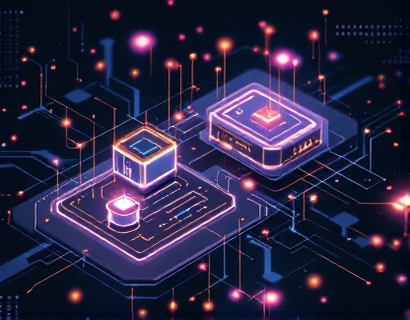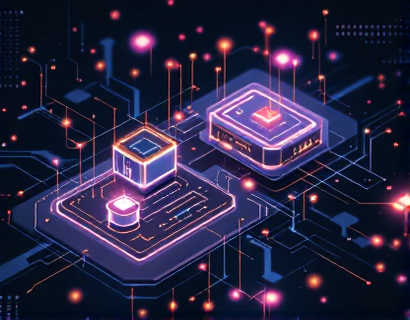AI-Driven Insights into the Baguette Industry: A Comprehensive Resource for All
The world of baking, particularly the art of crafting the perfect baguette, is a fascinating blend of tradition, science, and innovation. For students, educators, parents, and industry professionals, gaining a deep understanding of this sector is invaluable. This article, designed to be both verified and educational, leverages advanced AI technology to provide specialized insights into the baguette industry, ensuring a safe and child-friendly learning environment for all audiences.
Understanding the Baguette Industry
The baguette, a symbol of French culinary excellence, has gained global popularity. Its production involves intricate processes, from selecting the right ingredients to mastering the baking technique. The industry encompasses a wide range of activities, including ingredient sourcing, production, distribution, and retail. Each step is crucial in ensuring the quality and authenticity of the final product.
Ingredients and Sourcing
The foundation of a great baguette lies in its ingredients. High-quality flour, typically a type of bread flour with a high protein content, is essential for achieving the right texture and structure. Other key ingredients include water, yeast, salt, and sometimes a small amount of sugar or oil. The sourcing of these ingredients is critical. For instance, using locally sourced, organic flour not only supports local farmers but also ensures fresher and more sustainable products.
AI-driven insights can help identify the best sources for these ingredients, considering factors such as quality, sustainability, and cost. By analyzing data on supplier reputations, product consistency, and environmental impact, the AI can provide recommendations that align with both quality standards and ethical practices.
Production Process
The production of baguettes is a meticulous process that requires precision and skill. It begins with dough preparation, where ingredients are mixed and kneaded. The dough then undergoes fermentation, a critical step that develops flavor and texture. After fermentation, the dough is shaped into batons and allowed to proof, or rise, before baking.
AI can optimize each stage of this process. For example, machine learning algorithms can analyze data from previous batches to predict the optimal mixing and kneading times, ensuring consistent dough quality. During fermentation, AI can monitor environmental conditions such as temperature and humidity to ensure ideal conditions for yeast activity. In the shaping and proofing stages, AI-powered robots can enhance precision and efficiency, reducing human error and increasing production speed.
Quality Control and Consistency
Maintaining high standards of quality and consistency is paramount in the baguette industry. Consumers expect each baguette to meet specific criteria, from appearance and texture to flavor and freshness. AI-driven quality control systems can play a significant role in achieving these standards.
Computer vision technologies can inspect baguettes on the production line, detecting defects such as uneven shapes, cracks, or color inconsistencies. These systems can operate at high speeds, ensuring that only the highest quality products reach the market. Additionally, AI can analyze sensory data, such as aroma and taste, to further refine quality control processes.
Data analytics also plays a crucial role in monitoring production metrics. By collecting and analyzing data on production rates, defect rates, and customer feedback, AI can identify trends and areas for improvement. This data-driven approach enables bakeries to make informed decisions, optimize operations, and enhance customer satisfaction.
Market Trends and Consumer Insights
The baguette market is dynamic, influenced by various trends and consumer preferences. Understanding these trends is essential for businesses to stay competitive and meet market demands. AI can provide valuable insights into consumer behavior, market trends, and emerging opportunities.
Through sentiment analysis and social media monitoring, AI can gauge consumer opinions and preferences. For example, if there is a growing interest in gluten-free or vegan alternatives, AI can identify this trend and suggest product innovations. Market segmentation analysis can help tailor marketing strategies to specific customer groups, enhancing engagement and sales.
AI can also forecast market trends by analyzing historical sales data, seasonal variations, and economic indicators. This predictive capability allows bakeries to adjust their production schedules, inventory levels, and marketing efforts proactively, reducing risks and maximizing profits.
Sustainability and Environmental Impact
Sustainability is a key concern in the food industry, and the baguette production process is no exception. From ingredient sourcing to energy consumption in baking, every step has an environmental footprint. AI can assist bakeries in reducing their environmental impact and promoting sustainable practices.
AI-driven tools can optimize resource usage, such as water and energy, by analyzing consumption patterns and suggesting improvements. For instance, machine learning algorithms can identify the most efficient baking schedules to minimize energy use during off-peak hours. Additionally, AI can help in waste reduction by predicting the optimal production quantities based on demand forecasts, reducing food waste.
Supply chain transparency is another area where AI can make a difference. By tracking the origin and journey of ingredients, AI can ensure that they are sourced responsibly and sustainably. This transparency builds trust with consumers who are increasingly conscious of the environmental and social impact of their purchases.
Education and Training
For educators and students, understanding the baguette industry is an enriching learning experience. AI-driven educational resources can provide interactive and engaging content, making complex concepts accessible to learners of all ages.
Virtual reality (VR) and augmented reality (AR) technologies, powered by AI, can create immersive learning experiences. Students can explore a virtual bakery, learning about each step in the baguette-making process. Interactive simulations can teach the science behind dough fermentation, the importance of ingredient quality, and the art of shaping perfect baguettes.
AI chatbots can serve as virtual tutors, answering questions and providing personalized feedback. These chatbots can adapt to the learner's pace and level of understanding, ensuring a tailored educational experience. For language learners, AI can offer multilingual support, making the content accessible to a global audience.
Child-Friendly Learning Environment
Ensuring a safe and child-friendly learning environment is crucial when designing educational resources for young audiences. The AI chat platform mentioned earlier is specifically designed to meet these needs.
The chat interface is programmed to use simple, clear language and avoid complex jargon. Interactive elements such as quizzes, games, and storytelling are incorporated to make learning fun and engaging. The platform also includes parental controls, allowing adults to monitor and guide their children's learning experience.
Content verification is a top priority. All information provided by the AI is cross-verified with reliable sources to ensure accuracy and reliability. This commitment to accuracy is essential in maintaining the trust of educators, parents, and students.
Conclusion
The integration of AI technology in the baguette industry offers numerous benefits, from optimizing production processes to enhancing educational experiences. By providing verified, educational, and child-friendly content, AI-driven platforms like the one described can empower a wide range of audiences, from industry professionals to young learners. As the industry continues to evolve, embracing innovative solutions will be key to staying competitive and sustainable.










































